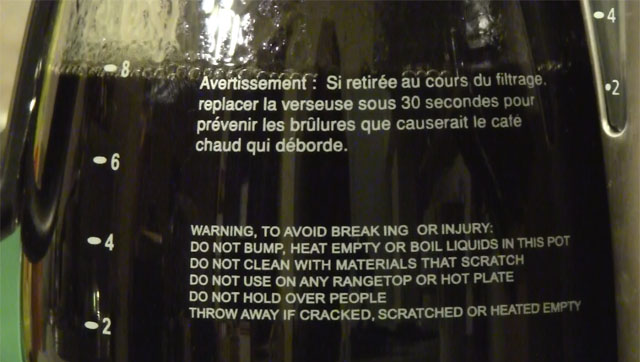In what follows I can only speak from my own experience (and maybe that of Manly Hall). Your relationship, both with marijuana and with spiritual growth may differ. If after reading this, you have a different story to share, please comment below.
A few years ago I was spending a lot of time listening to lectures by Manly P. Hall while I worked (one of the few perks of freelancing from home). I was also a somewhat more than occasional pot smoker. I was in the middle of a talk entitled “Quest for Spiritual Teachers” when I heard something that stopped me cold:
… each individual must live out his own pattern of purposes. There are rough instructions, however, and some of them are pretty rough, as to how this is done.
One of the first is to realize this set of four steps, and to realize that the life of sanctity begins at the bottom of these steps and ascends gradually. […] the simple simple fact is that all growth begins with the proper development and integrity of the physical body. […]
This means that any destructive habit which endangers the body BLOCKS THE ENTIRE PROCEDURE. The individual cannot go along and have a little marijuana now and then and accomplish the things he wants to accomplish.
!!! That old fuddy-duddy! I thought. I like a little marijuana now and then. Destructive habit, my ass. Who is he to say I can’t even begin a spiritual quest? What does he know about it anyway?
There were things that I not only enjoyed about smoking pot, but positively relied on it for. That thought gave me a little bit of pause. Was I relying on marijuana to get by? Surely not. But. I decided that before writing this idea off completely, I would give it a proper examination and, I hoped, a thorough rebuttal.
Major ways in which I benefitted from marijuana:
1. It made me more insightful, helped me think around corners, and expanded my sense of humour.
The first time I watched South Park stoned, I cried, I was laughing so hard. What had previously seemed to be a relatively inane and vulgar cartoon opened up into a paragon of hilarious social commentary and fart jokes. But the benefits weren’t limited to greater appreciation of low-brow cartoons. I had great conversations, came to new epiphanies about my problems. My boyfriend found me a lot funnier when I was high.
2. It allowed me to transcend physical limitations like fatigue and irritation.
One activity that brings me a lot of joy is to massage my partner’s back, especially when he is sick/sore/stressed/unable to sleep. And a back rub from me after I’d had a joint was not — I thought — in the same ballpark as one performed straight. I didn’t get tired or bored. I didn’t get resentful of endless requests to move this way or that way. I could go for an hour without batting an eye. My fingers didn’t get sore and my arms didn’t get weary. I entered a zone where my entire life’s purpose consisted of feeling out the smallest impulses of the body beneath my hands, chasing down knots and obliterating them with wave after wave of relaxation. I didn’t want to give that up. I didn’t know how I’d ever manage to recreate that level of meditation or immunity to pain without a little herbal assistance. It also increased my alcohol tolerance and enabled me to party late into the night… or, even when alcohol wasn’t involved, just to stay up as long as I wanted to keep up with my partner’s nocturnal schedule.
3. It was a peace pipe.
In the first way-too-many years after moving in together, my partner and I argued. A lot. Difficult life circumstances, personality flaws, radically different upbringings and approaches to rituals and housekeeping, meant that we both built up a great deal of frustration and anger, and once one or two or three sparks hit that powderkeg, things could get pretty heated. But we loved each other, and so after we cooled down, we always came around to see the other’s point of view, apologized for yelling, and offered to make what changes we could to make things better. One great way to speed up the process, to make a 180 degree turn from fury to empathy, was to smoke a joint together. It worked like magic.
Hard Questions
It was pretty obvious to me after writing out my reasons for needing marijuana that I was in fact using it as a crutch, a short-cut to deal with obstacles that, if I hadn’t had pot around, I might have had to develop actual character strengths to overcome. The real kicker: If I hadn’t had marijuana to lean on, to get some distance from my rage and stress and depression, would I have allowed such an intolerable domestic environment to develop and persist for as long as it did? Would I have taken more responsibility earlier? Would I have been forced to draw better boundaries and be more honest about my own limitations? Would I have left?
I could see clearly how any crutch of this kind was an impediment to spiritual growth, though the impediment had little to do with “endangering the body”. The danger here was directly for the soul. By escaping from my emotional reactions, I was escaping from reality, from facing the truth. And without truth, there is no spiritual quest. The procedure is, in fact, blocked from the get-go.
Aftermath
I wish that I could tell you that I kicked the habit immediately after performing this analysis, but in fact it took several more months for my use to taper off, and if it hadn’t been for pressure on my partner from his cardiologist to stop as well, I don’t know if I would have had the guts to draw a hard line on my own while he was still smoking at home. Peer pressure is real, boys and girls.
However, we do now live in an almost-entirely marijuana-free home. I haven’t sworn off it in principle, just as a habit, but I haven’t had much occasion even for a “now and then” toke since. A lot of challenges remain — for one thing, partner used to use pot to help manage his pain, and now he has one less crutch in that regard — but I’m happy to say that the sky has not fallen.
We lose our train of thought a lot less; it has been ages since we asked each other, “what was I saying?”
Call it coincidence, or grace, or maybe it was in fact a result of the increased clear-headedness, but we almost never argue like we used to. We had enough of it. We can’t take it anymore. When we get angry we talk quieter, and when we can’t do that, we walk away… or he does, at least, and I’m learning to… and we rebound into forgiveness faster than ever before.
I have developed some tricks to keep myself focused and patient during long back rubs. Along the way I’ve discovered some techniques that work way better than before. I discovered them through attentive listening, which I thought I was doing before when I was in fact too busy congratulating myself on my awesome attentiveness. I haven’t learned to rise above really sore thumbs yet, but I’m pretty creative with knuckles and elbows in the meantime. It makes me quite happy to know that our intimacy isn’t dependent on a symbiotic relationship with the herb.
We haven’t watched South Park in years.
I should probably point out that I’m hardly a poster child for spiritual growth; I have a BIG list of other impediments to spiritual progress to tackle next, and it is more than a little depressing to realize that after all these years on earth I have scarcely a foot on the path. Reality, Truth: these things are scary and painful and most of the time I’m not that fond of them at all. But nothing on earth feels as good as the smallest moment of being straight with my heart.
———————————————
Manly P. Hall: a high-ranking freemason, author, and totally down with the Luciferian agenda (turning men into gods), which I find alternately hilarious and gut-wrenchingly appalling.

 Søren Kierkegaard’s
Søren Kierkegaard’s 


